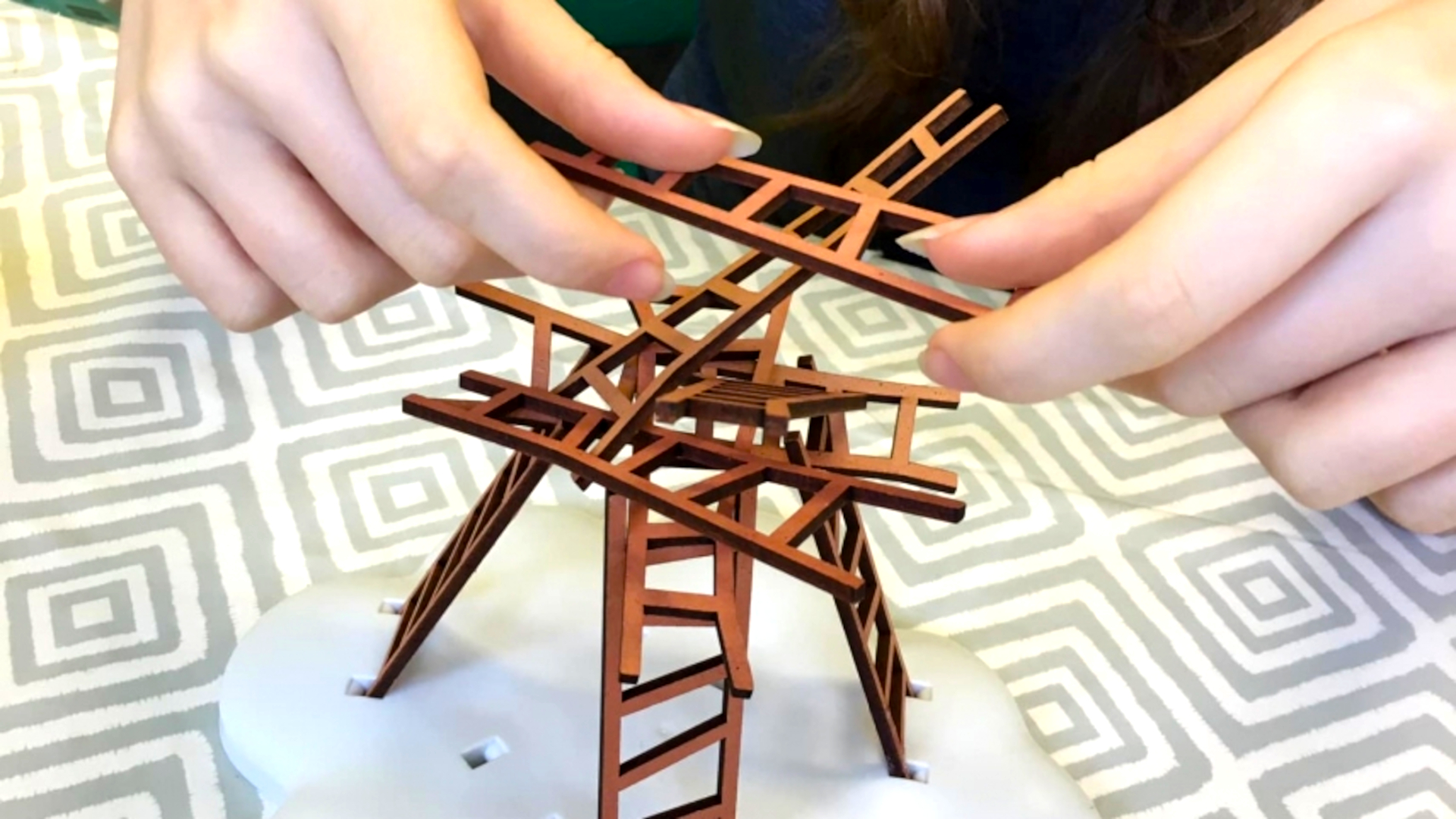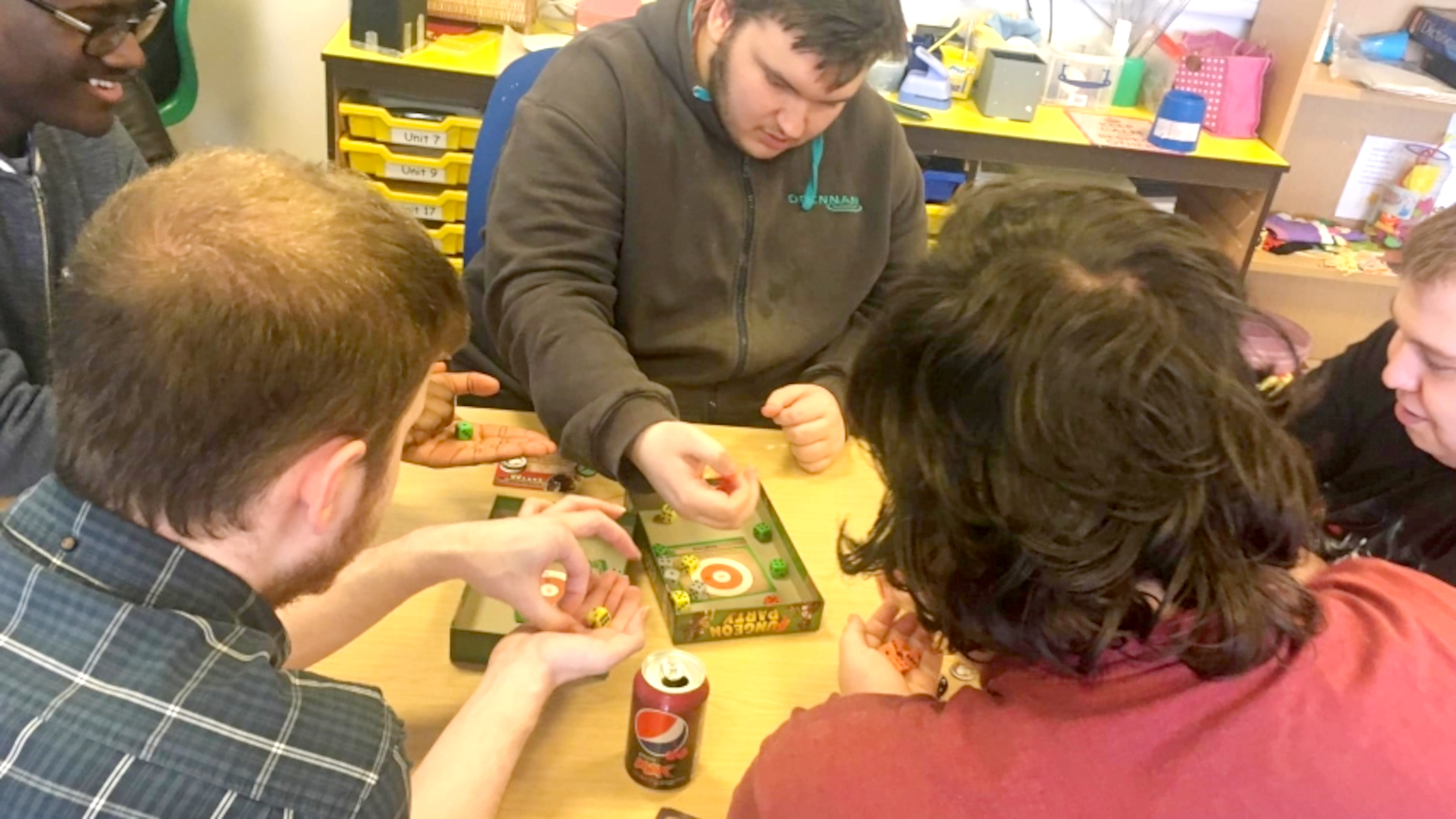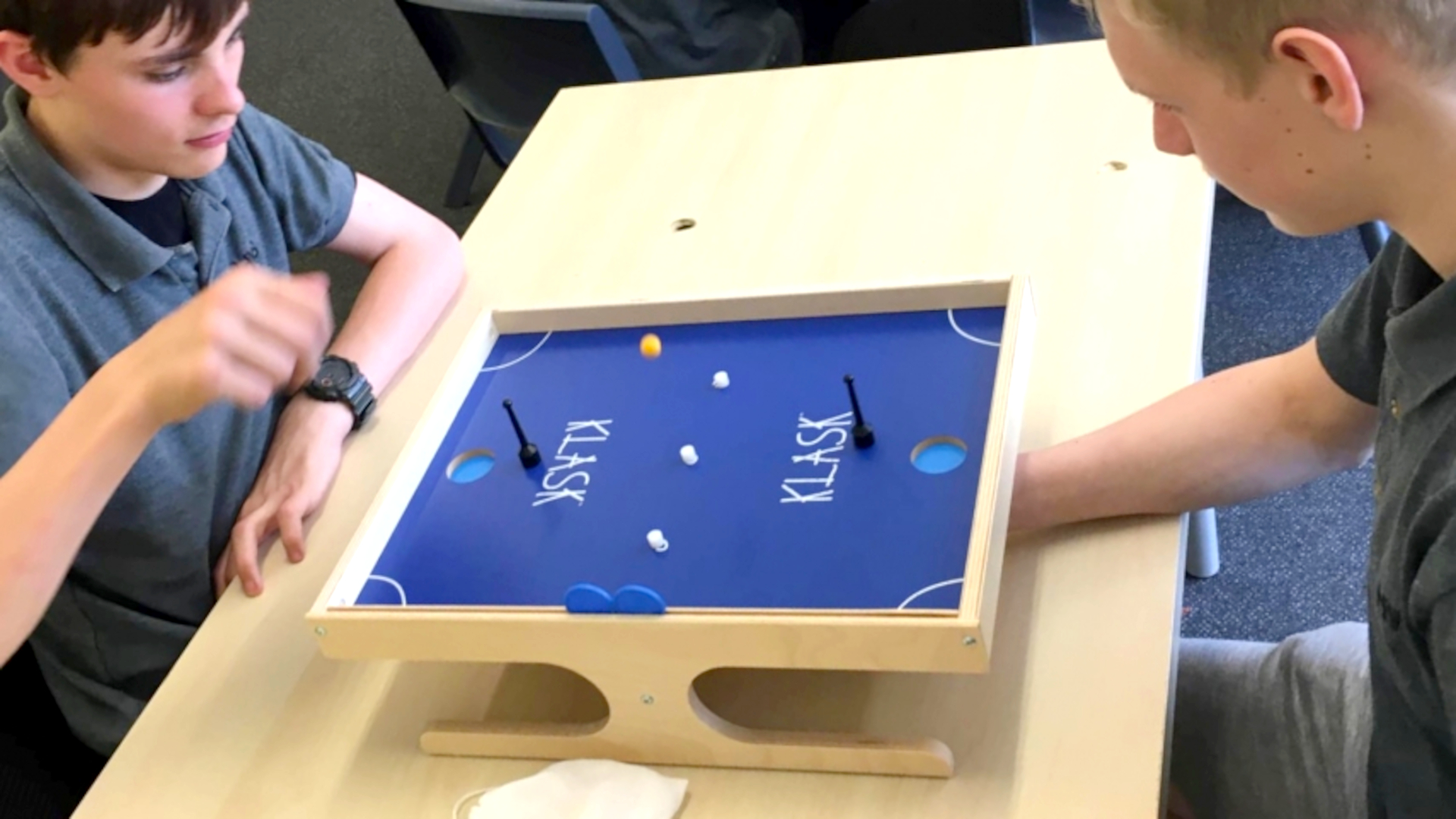DnD and board games are experiencing a historic boom in popularity, and more people are playing tabletop games than ever before. But not everyone has easy access to our hobby, and some in the industry see untapped potential for these games to expand people’s opportunities, bring folks together, and generally do good in the world. UK-based organisation Imagination Gaming is one group trying to do just that.
The firm brings hand-picked selections of tabletop games into schools, young offenders’ institutes, and other venues, aiming to teach key skills, entertain, and bring people together with play.
Imagination Gaming ran a popular board games area at the WASD 2022 gaming convention, and afterwards we sat down with the owner, Nigel Scarfe, to delve further into what the firm does (and why). Here’s an edited version of our conversation, exploring Imagination Gaming’s activities, the types of games they work with, and Scarfe’s views on the power of tabletop games.

Wargamer: So what is Imagination Gaming, what do you do?
Nigel Scarfe: We were set up, initially, to look at using board games, card games, and so on in school – more for the social side of it, rather than teaching anything specific. And what Imagination Gaming does right now is a whole range of different things. Generally, we go into primary schools all across England and work with children as young as three, all the way up to the top end of primary school.
We do very maths-specific days; we do literacy-specific days; we do this to work with the bullies and the bullied; we do this to work with children that have low self esteem or are not engaged. We also work in special schools with kids who have very acute needs. We work in secure care centres, prisons, old people’s homes, occasionally women’s institutes, you name it.
In schools, we work with the teachers and the kids to kind of gamify how they’re teaching things. And our job is not specifically to teach them maths or literacy. It’s to give the kids and the teacher 100 different ways to apply what they’ve been taught in class.
So are you teaching the kids using games, or are you teaching the teachers to use games in school?
Part of what we do is try to set that school or that organisation up with a board games club of their own; we’ll talk to them about the benefits, and why you’d want to have an ongoing games club – some schools bring us in every week.
But we’ll also work with the staff to understand how can I change that rule slightly, or that game slightly. So if I’ve got a child that’s autistic, or with any sort of particular need, we might be able to change or take out a certain rule out and go: this game now works better for them.
We also we try to leave some sort of games pack at the school, so they can then continue to use games as part of the daily life at school.
Where did the idea for all this come from?
When I was a child, which is far too long ago, I didn’t really have any sort of personality, I had no confidence. I really struggled with a lot of things. When I was 12, my cousin introduced me to Dungeons and Dragons. It was a game that had come out recently, no one really knew about it… and I was like: oh, my God, what is this? And I was blown away.
Prior to that, I would have said, I wasn’t imaginative, I wasn’t creative. And I certainly wasn’t smart. And I then managed to get myself a copy of this red box. And I couldn’t wait to write adventures to design characters. I was at the library all the time getting books on folklore, and Greek gods, and Roman history, and things like this, just looking for things to, kind of, inspire adventures and help with designing maps, and so on.
What occurred to me, some time afterwards, was just how much it affected my desire to learn. It absolutely had a huge effect on my ability. I was consuming books. I was reading all the time. My maths improved significantly because I was constantly rolling dice, working things out – and all the time my friendship circles increased, because I ran the game for one or two friends, who would tell their friends…

So you use tabletop RPGs as well as board games?
We specifically use Dungeons and Dragons, because there’s a there’s a kind of a buzz associated with a name that the kids may have heard of – but they may not necessarily know what it is or how it works.
For example, in some of the special schools for extreme behaviour, we set up Dungeons & Dragons game clubs after school where the kids play D&D. And it’s a way of getting those kids to mix. We’ll throw certain situations into the game that we can reflect on some things that might happen in the real world.
We do a lot of that at the Comic Cons. We do beginners’ DnD, and we work with [Dungeons & Dragons publisher] Wizards of the Coast to design a very specific starter adventure that we can in play around 45 minutes to an hour. We’ve designed very specific DnD character sheets for people that have never played the game before, that really explain everything on them, so you don’t need to know anything.
You went from bringing games into primary schools, to taking them into prisons – what do you do differently there?
When we go into somewhere, such as a young offenders’ institute, we’re not obviously going in to teach anything; we’re more going in to find a range of games for them. That will often just create a conversation. So the last time we went into a young offenders’ institute, we were trying to find a range of games that some of the wardens and the inmates can occasionally sit and play together – calms them down, focuses the mind.
And through the course of a game, they’ll start talking to each other. And they might open up about – how are you feeling? How’s this going? How’s that going? How are you today? How are things? You know, it’s like a medium to create a conversation, really.

What is it about physical, tabletop games that makes them particularly suited to the work you do, as opposed to other social activities or videogames?
They are great for allowing kids to apply the learning that they’ve done in school, they’re all highly social games. There are games where you can see people’s body language, which isn’t seen as as important as perhaps it is. So you find the children socially less developed right now, particularly with lockdown. It’s evident that the kids are, say, a couple of years behind where they should be, socially and emotionally. And again, it’s a great way of overcoming the issue of how to win and how to lose.
The three golden rules are: can I teach you in 30 seconds? If I can’t, they’re no longer gonna listen to me – they’re not going to listen to me for more than 30 seconds. Second, can we play in five or ten minutes? Because then I can play in breaktime; I can play at dinner break; golden time; Friday after-school clubs quite easily. And third, does it have a lot of replay value? Generally, the range of games we take in tick all those three boxes.
How has it all gone, then?
It’s been a terribly difficult time, because almost as soon as I set the business up [in the mid-nineties], the government was taking money out of education, and our children’s services, and so forth. And all the youth clubs got closed, because the government took all the money away from it. It was a really, really difficult time. And it has really been, for 16 years, a very, very difficult time to keep things going. And then lockdown hits and you’re like, wow, I think I’ve roll a critical failure here.
But we’re still going, we’ve never been as busy. We’ve got a an incredibly busy summer ahead of us now!
You can find out more on the Imagination Gaming website, read testimonials from the schools it works with, or contact Nigel directly to talk about its activities.
Source: Wargamer







